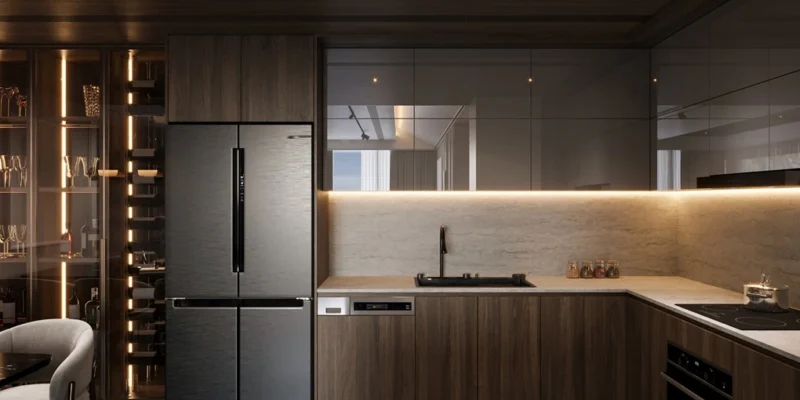


Eco-conscious design isn’t just a trend-it’s a commitment to healthier living and a better planet. In Canada, where environmental stewardship is a growing priority, homeowners are increasingly looking to make sustainable choices in their kitchens. One of the most significant decisions? Choosing countertops that are not only durable and stylish but also environmentally responsible.
At Teccorp Stone, we’ve seen a surge in interest for countertop materials that reduce carbon footprint, use recycled components, and last for decades. Whether you’re building a new home or upgrading your kitchen in 2025, understanding the sustainable options available will help you make smart, future-forward choices.
Canada’s push toward net-zero emissions and greener construction practices means that kitchen renovations are no longer just about aesthetics. Your material choices impact:
An eco-friendly kitchen isn’t just better for the environment—it can also be healthier for your family and more cost-effective in the long run.
When evaluating countertop options for environmental impact, here are a few factors to look for:
Overview: Made by combining crushed recycled glass with concrete or resin, these countertops are one of the most visually unique and sustainable options on the market.
Pros:
Cons:
Why It Works in Canada: Perfect for design-forward homes in urban centers like Toronto or Vancouver, where green building certifications (like LEED) are becoming more common.
Overview: Wood adds warmth and texture to the kitchen. When sourced responsibly or reclaimed, it’s a top choice for sustainability.
Pros:
Cons:
Teccorp Tip: Combine wood with stone for a hybrid island or breakfast bar to keep function and sustainability in balance.
Overview: Quartz is engineered from natural stone particles and resins.
Pros:
Cons:
Eco Note: Ask your fabricator-like Teccorp Stone-about brands that use recycled quartz and sustainable manufacturing practices.
Overview: Yes, paper! These countertops are made by compressing recycled paper and resin into a durable, stone-like surface.
Pros:
Cons:
Best Use: Great for eco-conscious households looking for a unique, soft-touch surface for secondary prep areas or islands.
Overview: Concrete can be made with recycled fly ash or slag, reducing its environmental impact. It’s also highly customizable.
Pros:
Cons:
Ontario Insight: Concrete’s thermal mass makes it a good match for radiant heat or solar gain in energy-efficient homes.
Overview: Natural stone is long-lasting and doesn’t emit VOCs. When sourced from ethical quarries or processed locally, its footprint can be minimized.
Pros:
Cons:
Local Advantage: Ask Teccorp Stone about Canadian-sourced granite or soapstone to support local industry and reduce emissions.
Overview: Porcelain is made from natural clay baked at extremely high temperatures, making it durable, UV-resistant, and recyclable.
Pros:
Cons:
Great For: Outdoor kitchens or sunlit kitchens where UV resistance is key.
Designing an eco-friendly kitchen in 2025 means thinking beyond the color palette and leaning into choices that serve your family and the planet. Whether you go for recycled glass, reclaimed wood, sustainable quartz, or Canadian stone, your countertop can be both a design feature and a conscious decision.
At Teccorp Stone, we help Canadian homeowners balance performance, beauty, and sustainability every day. If you’re ready to create a kitchen that aligns with your values, let our team guide you to the countertop that’s right for you-and the planet.